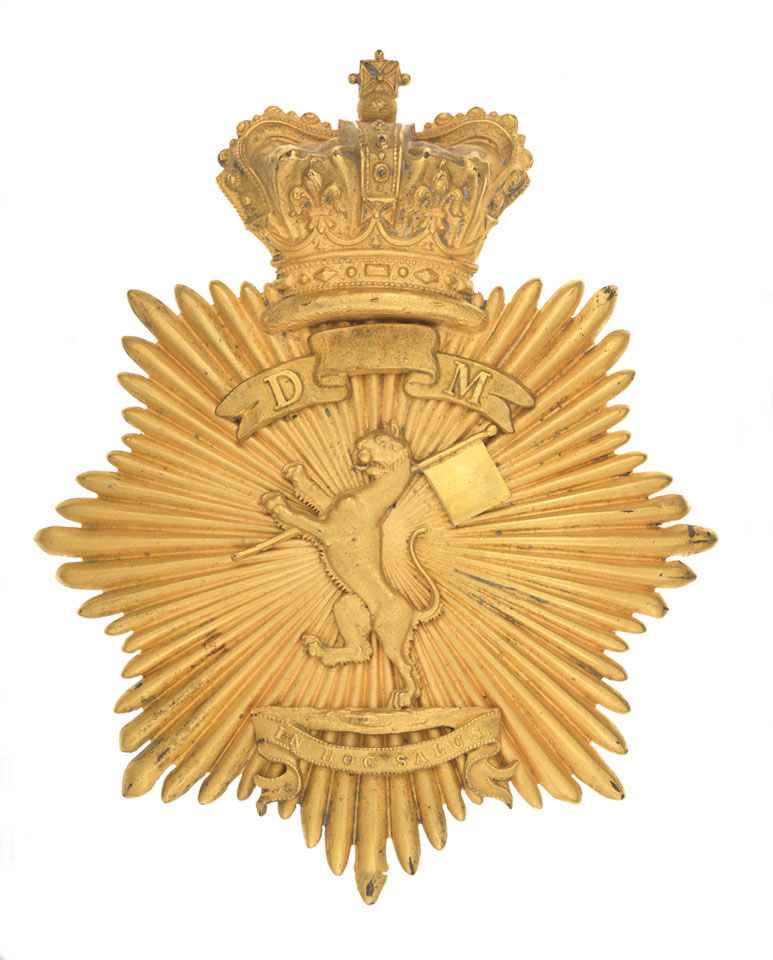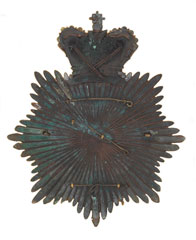
Online Collection
Shako plate, officer, Demerara Militia, 1829-1844
Copper-gilt badge in the form of a rayed eight-pointed star, the uppermost point of which is displaced by a monarchial crown. In the centre, a jaguar rampant facing dexter shouldering a banner upon a staff, above a frosted scroll with beaded edges bearing the Latin motto, 'In Hoc Salus' (there is safety in this). Above the lion, a scroll bearing the initials of the unit, 'DM'. On the reverse two horizontally placed loop fittings, one on either side of centre, with a further pair of copper wire fittings at base.
Demerara is a region in the Guianas, on the north eastern coast of South America. It was captured by the British from the Dutch in 1796. The colony had become an important centre for sugar production and, as a result, a destination for the legal and illegal trading of slaves. Georgetown, at the mouth of the Demerara River, was the capital of the colony. The Demerara Militia was first formed in the early 1800s to assist the British garrison in defending and maintaining security within the colony. In 1823 the unit is believed to have been involved, along with the 21st Regiment of Foot (Royal North British Fusiliers) and the 1st West Indian Regiment, in the suppression of a major slave uprising. Although only a small number of white colonists were killed during the rebellion, the majority having either fled to the capital or been imprisoned by the rebelling slaves, the response from the authorities was swift and bloody.
NAM Accession Number
NAM. 1982-11-165-1
Copyright/Ownership
National Army Museum Copyright
Location
National Army Museum, Study collection
Object URL
https://collection.nam.ac.uk/detail.php?acc=1982-11-165-1


